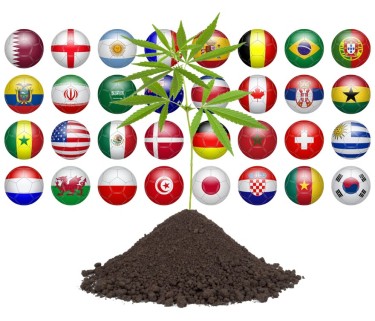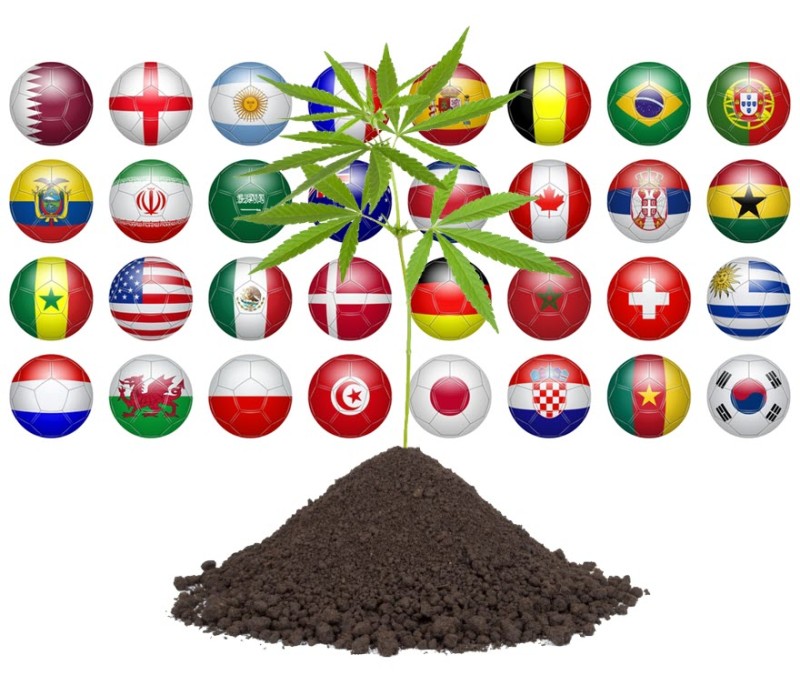
Many people would agree that the United States federal policy is far behind the American mindset and, perhaps, even the global psyche as regards cannabis acceptance and legalization. Policies that govern cannabis in the United States have been quite trendy in mainstream media. But most often than not, the lack of concrete actions on the part of the U.S. federal government on cannabis legalization is making the headlines.
Be it the Marijuana Opportunity Reinvestment and Expungement Act facing oblivion or a powerful open letter to President Joe Biden from his closest associates calling for the revision of federal cannabis laws; it is evident that the U.S. Federal policy on cannabis is not visionary.
Meanwhile, other nations and states are taking bold steps regarding cannabis legalization and have achieved significant results in the last decade. Therefore, as things stand, it won’t be out of place to affirm that America’s federal policy is lagging behind the global cannabis stance as the country continues to take a timid approach to cannabis. Canada, the neighbor to the North, made cannabis legal at the Federal level years ago and has a full-fledged recreational and medicinal marijuana market.
While the U.S. government is taking a slow and timid approach regarding cannabis legalization, other countries seem to be addressing the issue head-on. Therefore it begs the question: what reasons have other nations and their individual states found to decriminalize and legalize cannabis? In contrast, the U.S.U.S. has been unable to establish a concrete rationale. Even strong US ally, Germany, has moved to legalize recreational and medicinal cannabis in the past 12 months causing a stir of legality issues in the European block.
Mexico
Mexico, one of the closest neighbours of the United States, bordering America to the south, decriminalized and legalized cannabis at the federal level in 2021. Without diving deep into why the Mexican government legalized cannabis, the public response has been that cannabis legalization is in the hopes of reducing violent crimes.
In a wide margin vote of 8 - 3, the Supreme Court of Mexico decriminalized cannabis in 2021. As a result, cannabis is now legalized for cultivation and use only for medical purposes. According to CNN, the country decided after cannabis proponents pushed for decriminalizing cannabis to reduce violent crimes.
Even though drug-driven violence was not the primary and only reason for the decision reached by the high court, it is a reason worth considering, given justification for policy change can stem from all kinds of places.
Thailand
While the United States continues to debate cannabis, Thailand has taken the giant step in becoming the first Asian country to legalize medical use of cannabis. The Asian government has clearly stated that public use of cannabis is still very much prohibited, but it has legalized cannabis use for medical purposes.
While Thailand only legalized cannabis for medical use, the Asian country can still position itself and rightly use its present stance on cannabis to promote tourism in the country. According to National Public Radio, Thailand’s primary aim is to make a dent in the industry for medical cannabis. The article also explains that even though only a few neighboring countries have legalized marijuana, Thailand has positioned itself to make the best of the present opportunities. This is especially true since Thailand already has a well-established tourism industry, and its natural tropical climate is more than ideal for cultivating cannabis.
In addition, Thailand will also be pardoning and freeing inmates currently serving non-violent cannabis-related crimes. While this seems relatively easy for Thailand to achieve, U.S. lawmakers are still pushing for the cannabis decriminalization bill.
Malta
Thailand isn’t the only country that has made international headlines as regards cannabis legalization. Similar to Thailand, Malta also took the bold step to legalize marijuana in 2021, making it the first European country to do so. Even though Malta has not inaugurated any cannabis dispensaries or lounges, the country has legalized cannabis cultivation and use within its territories.
The reason for Malta’s cannabis legalization is quite similar to that of Mexico. According to the New York Times, the Maltese government explained that the new statute aims to combat illegal and criminal drug trafficking while also ending criminalizing Maltese for using cannabis.
Looking at the trend in Mexico and now Malta, it seems that regulating and legalizing cannabis instead of waging war on the illegal criminal market is a driving factor in many countries that have decriminalized and legalized cannabis before the United States.
Switzerland
Switzerland is one of the countries that just recently legalized the medical use of cannabis after lifting its ban on cannabis as of August 2022. This latest development by the Swiss government also allows for the export of medical marijuana products. One of the primary reasons for the legalization of medical cannabis in Switzerland is the exponential growth in medical cannabis popularity. Another important reason is the heightened administrative ramble that developed due to the increase in medical cannabis popularity.
According to Forbes, the Federal Council duly justified the county’s latest stance on medical cannabis legalization. The Federal council affirmed that there’d been an increase in the demand for authorizations in the last years. This includes a slowed-down medical treatment and a significant administrative burden. Only in 2019, the ministry of health issued roughly 3,000 special permissions.
Conclusion
Many factors are responsible for why other countries are making significant progress regarding cannabis legalization while the United States slowly follows far behind. The justifications among these countries vary from hoping to reduce drug-related crimes and violence to boost medical tourism in their countries.
While the United States presents lots of struggles to pick from to push cannabis legalization at the federal level, a single strong-enough cause has not been chosen. Without this, it will be difficult for the United States to transition into a cannabis post-prohibition era.
However, as things stand, the move for cannabis legalization has gained massive support in states like Louisiana, Florida, Texas, and North Carolina — but while the idea of cannabis legalization is popular, it seems not to be a significant priority to many voters. Notwithstanding, as the cannabis industry continues to develop, pressure is bound to mount on lawmakers to end federal cannabis prohibition.






